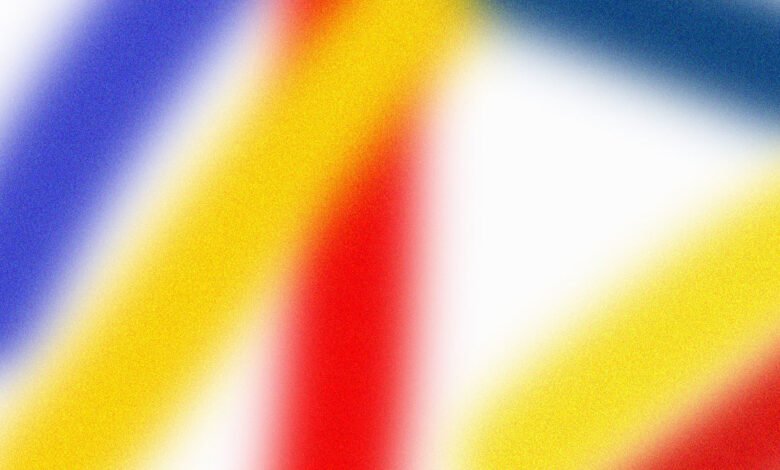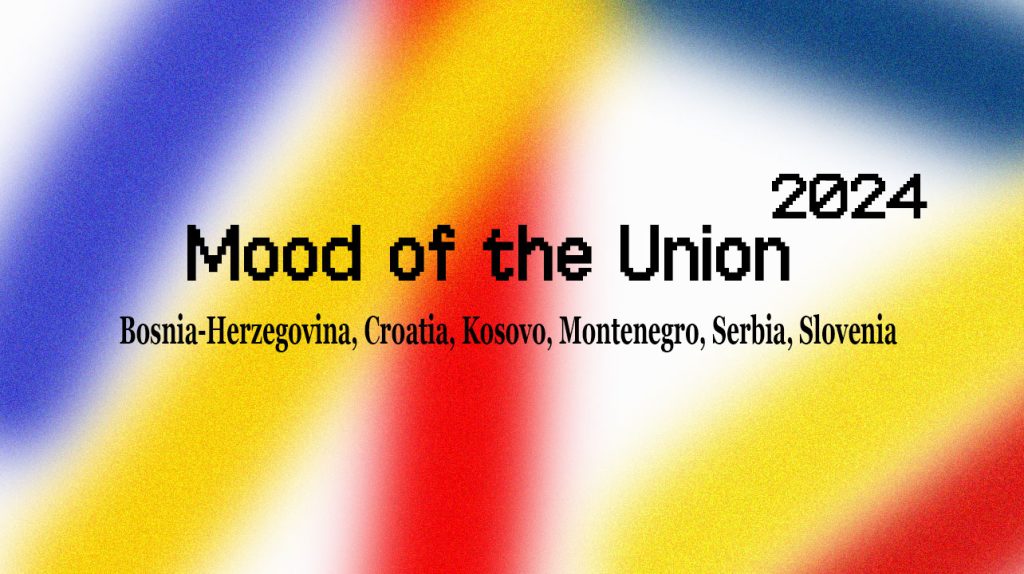
When Jean-Claude Juncker became president of the European Commission in 2014, he declared that accession negotiations would continue over the next five years, especially with the countries of the Western Balkans, but that there would be no new enlargement before 2020. His statement was harshly condemned in the Western Balkans and Juncker had to soften his tone.
Ten years later, not one Western Balkan candidate has joined the EU. But for most politicians in these countries, this is no cause for dissatisfaction. For them, the never-ending journey towards the European Union seems like a decent prospect.
Pretending to be implementing reforms and introducing European standards, while in fact being only interested in access to European funds, is a common form of hypocrisy among Balkan politicians. But even entering the EU is not a failsafe protection against undemocratic processes. Some Western Balkan countries have either shown signs of democratic backsliding even after joining the EU or face strong internal challenges that undermine the democratic system.
Since Russia’s full-scale invasion of Ukraine, the EU’s enlargement policy towards the Western Balkans has become more resolute. The issue now is not whether the EU wants these countries, but whether it can leave them out. As Russia revives its imperialist ambitions, envisioning a Eurasia stretching ‘from Lisbon to Vladivostok’ (Dmitry Medvedev), the security risk of exposing part of Europe to the Kremlin’s influence is too great for the EU. German Foreign Minister Annalena Baerbock recently described EU enlargement as a ‘geopolitical necessity’, saying that the EU could not allow itself ‘grey areas’ in the Balkans.
Encouraging messages from the EU
Understandably, European officials remain focused on countries immediately threatened by Russia’s aggressive policies – in other words, direct military intervention. But keeping the Western Balkans oriented westward is still very much on the EU agenda. EU leaders continue sending encouraging signals about the region’s European prospects.
According to EU foreign policy chief Josep Borrell, the candidate countries, including the Western Balkans, have a ‘historic window of opportunity’ to bind their future to the EU. The bloc’s envoy for the Belgrade-Pristina Dialogue, Miroslav Lajčák, has affirmed that membership prospects are now ‘stronger and clearer than ever’.
At a December summit, EU leaders called on the Western Balkans to implement decisive reforms to accelerate accession. The summit declaration that they adopted highlighted rule of law, fighting corruption, human rights and economic overhauls as key priorities. The summit also promised the region over €6 billion in aid, made conditional on enacting such reforms.
But this optimistic mood may not last indefinitely. There is no united European front, nor a universal consensus that Russia poses the primary threat. After the EP elections, it is likely that there will be more MEPs sympathetic to the Kremlin and opposed to EU enlargement than has been the case during the current legislature.
Ultimately, however, the central challenge remains the political realities in the Balkan states themselves. EU members issue encouraging rhetoric, but developments on the ground cannot be discounted. The Western Balkan countries are formally on the European path and have declared EU membership to be their primary objective. But whether their politicians are really working towards it is another matter. More broadly, it needs to be asked to what extent European values are rooted in the individual Balkan societies, and what the population’s attitude towards the EU really is.
Serbia’s anti-Europeanism
It has been five years since Serbia opened any new chapters in its negotiations with the EU. Although integration has not been ended formally, the regime in Belgrade is doing everything in its power to estrange Serbia from the EU.
All power in the country rests with one man: Aleksandar Vučić. The president wields total control, openly handpicking government members. The premier, Ana Brnabić, boasted that she addresses Vučić as ‘boss’, and high-ranking state officials take every opportunity to emphasise they are only putting his policies into practice.
Most of the press are also under the president’s control. The media lynching of political dissenters and critics of the government is a daily occurrence. Institutions are taken over and subjugated to the ruling party and free elections are impossible. Corruption is rife and the intertwining of political and criminal structures is too complex for investigative journalists to unravel.
Serbia was singled out for criticism at the recent EU summit in Brussels for not imposing sanctions on Russia and not harmonizing its foreign policy with the EU’s, despite having voluntarily committed itself to doing so. Such censure has been voiced time and again since the beginning of Russia’s invasion of Ukraine.
Not only has Serbia not imposed sanctions on Russia, but the loyalist media have become a platform for rabid Kremlin propaganda. Sputnik and RT, both of which are banned in the EU, carry on business as usual. Paradoxically, these Kremlin outposts are not even the most radical pro-Russian media in the country. The demonisation of democracy, liberalism, European values and everything from the West is the core content of most Serbian media.
Rather than embracing EU standards of rule of law, media freedom and democratic norms, Vučić appears bent on creating a Russian satellite in the Balkans – even as Belgrade accepts European investment and aid. His ruling Serbian Progressive Party openly celebrates Russia’s governance model while mocking the EU. It is unsurprising that only 46% of Serbian citizens favour EU membership, according to an October 2022 poll.
Vučić is systematically working to destabilize the region, especially in countries with a substantial Serbian ethnic community: Bosnia-Herzegovina, Montenegro and Kosovo. His associates promote a ‘Serbian World’ concept mirroring Russia’s revanchist vision, aiming to achieve 1990s-era Greater Serbia ambitions – for now by ‘peaceful’ means. Yet the EU maintains a policy of appeasement, with diplomats failing to pry Vučić from Moscow’s orbit despite occasional European Parliament criticism.
Indeed, the latest EU resolution demands an independent probe into suspected electoral fraud during Serbia’s December 2022 parliamentary and local elections. It threatens to suspend funding if direct government involvement in fraud is uncovered and calls for auditing EU pre-accession aid amid longstanding transparency concerns.
But with Vučić continuing to tighten his grip on power, undermining democratic institutions and fanning ethnic tensions, Serbia looks increasingly less like a genuine EU membership candidate. The empty overtures from Belgrade will no longer suffice.
Montenegro under malign influence
Among the countries of the Western Balkans, Montenegro has taken the lead in Euro-Atlantic integration. It joined NATO in 2017, opened all thirty-three negotiation chapters and curbed Russian influence. Notwithstanding the shortcomings in its fight against corruption, rule of law failures and related issues, Montenegro had been on a clearly charted European course supported by a majority of the population.
Then came the 2020 elections, ending decades of rule by the Democratic Party of Socialists (DPS). After the change of government, Montenegro formally continued with its integration process, and western officials predicted that the country would become a member of the EU within four years. But things look different on the ground.
Russian influence is increasingly prevalent, especially through structures connected to the regime in Belgrade. One example: In 2021, Vladimir Božović, the founder of the online newspaper IN4S, was appointed rector of the University of Montenegro (and reappointed for a second term this year). IN4S is one of the most ardent spreaders of Kremlin propaganda and the Greater Serbia narrative, including constant denial of the genocide in Srebrenica.
The recent change of government in Montenegro has been accompanied by the growing influence of the Serbian Orthodox Church (SPC) in the country’s politics, raising concerns over the erosion of secularism. A series of processions organized by the SPC, with support from pro-Serbian parties and Serbian media, paved the way for the government transition. Representatives of the SPC have now become significant players in political life, frequently consulted by public officials on various issues of national importance.
The Church is a centralized institution led from Belgrade by Patriarch Porfirije, a long-time ally of Vučić who consistently propagates the official policies of the regime. The latest example of the SPC’s alignment with Serbia’s agenda is the Patriarch’s Easter epistle, in which Porfirije echoed Vučić’s campaign against a recent UN Resolution on the Srebrenica genocide. In particular, he repeated the regime’s false claim that the Resolution declared the entire Serbian people to be genocidal. The Montenegrin authorities have followed suit, also proposing amendments to the Resolution aimed at supporting Serbia’s campaign, and emphasizing that guilt cannot be attributed to any one nation, ethnic or religious group.
While Montenegro may be the first among the Western Balkan nations to join the EU, there are concerns it could follow a path similar to Hungary if malign Russian and Serbian influence is left unchecked. Such a scenario is not far-fetched. The current president of Montenegro’s parliament, Andrija Mandić, was sentenced to five years in prison in 2019 for planning terrorist acts and trying to undermine Montenegro’s constitutional order in a bid to prevent the country from joining NATO. After the 2020 elections, an appeals court overturned Mandić’s sentence and acquitting him. The trial highlighted the presence of anti-western forces within Montenegro.
Insurmountable obstacles in Bosnia-Herzegovina
Bosnia-Herzegovina received official candidate status in December 2022, and the European Council decided to open negotiations on the country’s EU membership in March this year. According to a recent survey by the Directorate for European Integration of Bosnia-Herzegovina, 73.3% of respondents supported joining the EU; the approval rate was 86% in the Federation of Bosnia-Herzegovina but only 50.6% in the Republika Srpska, the semi-autonomous ethnic Serbian entity within the country.
The Republika Srpska entity is ruled with an iron fist by Milorad Dodik, a man under US sanctions. Seen as Putin’s main puppet in the Balkans, Dodik’s loyalty surpasses even that of Vučić, who is regarded as a more pragmatic politician. Dodik persistently advocates for the Republika Srpska to secede from Bosnia and Herzegovina and be incorporated into Serbia. Since the start of the full-scale war, he has met repeatedly with the Russian president, and last year received from Putin the Order of Alexander Nevsky for his contributions to Russian-Bosnian cooperation. Dodik vocally supports Russia’s ‘special operation’ in Ukraine, stating during a visit to Moscow last year that: ‘We understand that this is not a war between Ukraine and Russia – this is a clash between Russia and the West, which is trying to use Russia as a way to further inflame this war.’
A report submitted to the United Nations by the High Representative for Bosnia and Herzegovina states that the authorities of the Republika Srpska, led by Dodik, are actively undermining the Bosnian state, its competencies, institutions, and the Dayton Peace Agreement itself.
While Dodik’s ability to cause serious conflict in Bosnia-Herzegovina is not great, he is quite capable of hindering the country’s European prospects and sabotaging all efforts towards reforms and EU membership. The opposition in Republika Srpska is not much better – its politicians are united in incurable nationalism, the denial of war crimes and genocide, and glorification of war criminals, first and foremost Ratko Mladić. In this respect, they fully concur not just with Vučić’s regime, but also with a large part of the Serbian opposition, as well as influential intellectual, academic and ecclesiastical circles.
Half of Bosnia-Herzegovina is devoted to anti-European and anti-liberal values, and it enjoys the support of Serbia in this. To summarise: there are obstacles on Bosnia-Herzegovina’s path to join the EU that will be hard to overcome, despite the current European structures’ good intentions.
Kosovo’s brick wall
Among the Western Balkan nations, Kosovo remains the only one yet to attain EU candidate status. Despite applying in December 2022, it has hit a brick wall. The crux of the issue is that five EU member states – Spain, Greece, Romania, Slovakia and Cyprus – do not recognize Kosovo as a sovereign country. Spain’s stance stems from concerns over emboldening separatist movements in Catalonia and the Basque region, while Greece’s position is linked to its historical ties with Serbia and the ongoing Cyprus dispute.
For years, the EU has mediated dialogue between Kosovo and Serbia in an effort to normalise relations between the two countries. These efforts have been persistently obstructed by Serbia, which refuses to accept Kosovo’s independence – a central tenet of Serbian politics across the political spectrum.
Kosovo’s government, led by Prime Minister Albin Kurti, is distinctly pro-western and pro-European, viewing the country as part of the Euro-Atlantic world. However, the EU’s political structures appear to favour Serbia, with the Serbian Progressive Party (SPS) regime controlling Serb-majority areas in northern Kosovo and using them as a destabilizing force.
Allegations have surfaced of Serbia’s involvement in provocations and even a terrorist attack last year in the village of Banjska, carried out by an associate of Vučić. Despite this, the EU has penalized Kosovo’s government.
Democratic deterioration in Croatia
Croatia became the 28th European Union member state in 2013. However, the country’s democratic development has stagnated for years. For the sixth consecutive year, Freedom House’s annual ‘Nations in Transition’ report gave Croatia a score of 4.25 out of 7, indicating an entrenched democratic deficit. The report cites widespread corruption at all levels of government, a sluggish response from prosecutors to high-level graft cases, and concerns over media independence. Public trust in Croatia’s judicial system remains among the lowest in the EU.
Since 2016, the centre-right Croatian Democratic Union (HDZ) has led the government under the leadership of Andrej Plenković. For most of this time it has been in coalition with the minority Serb party. But after the parliamentary elections in April 2024, HDZ formed a new administration with the rightwing populist Homeland Movement, raising fears of a further democratic deterioration.
The Homeland Movement advocates tighter restrictions on migrant workers and stricter border controls. It also calls for a withdrawal from the Istanbul Convention to combat violence against women and opposes LGBTQ rights. Its far-right ideology is likely to shape government policies under Plenković’s third term as prime minister.
The opposition is little better. Croatian President Zoran Milanović of the Social Democrats holds strongly pro-Russian views, opposes Ukraine’s NATO membership, criticizes western military aid and has predicted Kyiv’s imminent defeat by an ‘indestructible’ Russia. With an illiberal governing coalition and a pro-Kremlin opposition, Croatia’s democracy faces a tight squeeze.
Slovenia’s populist temptation
Of the former Yugoslav states, Slovenia has progressed furthest on democratic norms, human rights and rule of law since joining the EU in 2004. However, its democracy faced a major test during Janez Janša’s third term as prime minister from 2020 to 2022.
Janša’s right-wing Slovenian Democratic Party clashed with EU partners and attempted to steer Slovenia towards an Orbán-style illiberal autocracy. Civil society fiercely resisted through constant protests until early elections were called in April 2022. Janša’s Slovenian Democratic Party suffered a heavy defeat against Robert Golob’s newly formed social-liberal party Freedom Movement. The election saw the highest turnout in 20 years. But while the populist threat in Slovenia has receded, the anti-democratic danger persists, with Janša casting the European elections as a referendum on the new government.
Prospects
Serbia has emerged as a major source of instability and a hub for disseminating anti-European and anti-liberal sentiments across the Balkans. Aleksandar Vučić’s regime is accused of using its influence over other Western Balkan nations to alienate them from the EU and the West, potentially drawing them closer into Russia’s orbit.
Critics argue that Vučić’s government destabilizes not only the region but also the EU itself, as the issue of enlargement becomes intertwined with security concerns. Curbing Serbia’s influence over Kosovo, Bosnia-Herzegovina and Montenegro is seen as a necessary step for these countries’ European integration prospects.
Lessons from the EU’s past engagement with Vladimir Putin suggest that appeasing autocratic leaders is the wrong approach. However, accession will not inoculate nations against undemocratic forces, as evidenced by backsliding in EU member Croatia and democratic setbacks even in Slovenia, widely considered the most democratic country in the Western Balkans.
All of this underscores that the fight for democracy is an ongoing process. Ensuring stability and democratic consolidation in the Western Balkans remains a critical challenge for the region and the broader European project.
Source link





